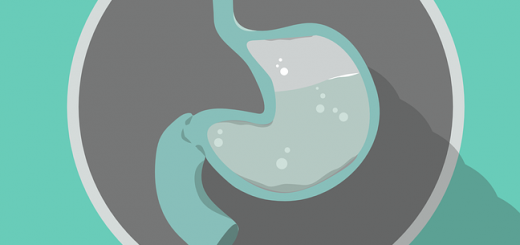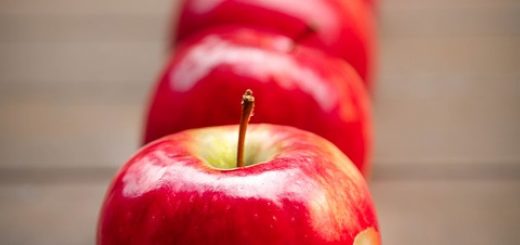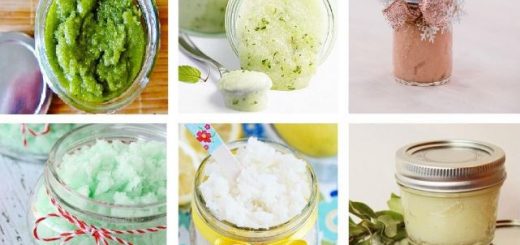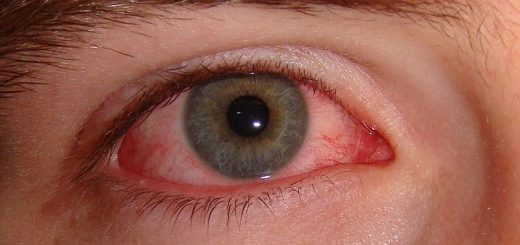33 Home Remedies for Anxiety
Feeling a little anxious from time to time is completely normal. Being a little anxious can help you to stay organized and helps you calculate risk. But when you struggle with anxiety on a daily basis and find that it starts to affect your everyday life, it’s time to address it.
Many people suffer from chronic stress or anxiety. Symptoms can include agitation, feelings of tension, nervousness, shortness of breath, and chest pain. Anxiety is one of the most common mental health issues in the world, with approximately 18% of adults in the USA are affected by anxiety related disorders every year.
For some people, their anxiety can be caused as a byproduct of another condition such as an overactive thyroid. Ensuring you get an accurate diagnosis is often the key to getting the right treatment. In the meantime, here are a few home remedies that can help tackle feelings of anxiety.
Home Remedies for Anxiety
-
Exercise
Regular exercise isn’t just a benefit for your physical health. It can also help to improve your mental health too. This is because exercises release endorphins which help to lift your mood. The effects can last for hours at a time so it’s a great way to seek regular relief.

Yoga can be a relaxing type of exercise to try
-
Cut Out Alcohol
Alcohol is a natural depressant. This means that whiles it can calm your body down, to begin with, once the effects wear off you’ll be feeling more anxious than before. Not only this, but prolonged usage can lead to alcohol dependency and depression. If you’re struggling with your mental health, alcohol is always best avoided.
-
Quit Smoking
Much like alcohol, the relief from anxieties that smoking gives you are often very short lived. The cravings that will follow will often make your anxiety worse once the initial buzz wears off. Plus, studies have shown that starting smoking early in life can increase your risk of developing an anxiety disorder later.
-
Avoid Caffeine
Caffeine can lead to restless jitters which will often lead to nervousness and increased anxiety. As a result, it can make an anxiety disorder worse and can even trigger panic attacks in some people. If your anxiety is only minor you should be okay if you cut down on caffeine. If you have severe or chronic anxiety avoiding caffeine altogether is a better bet.
-
Sleep
Insomnia is often linked to anxiety. A lack of sleep can leave your nerves feeling shot and make you irritable, agitated and jumpy – all of which contribute towards an anxiety disorder. If you’re struggling, make sure you make sleep a priority and make time to relax before bed. You can also prioritize good sleeping behaviors by trying some of the following.
- Avoiding sleep when you’re not tired
- Avoid reading or watching television in bed
- Getting up and moving to another room for a while if you find yourself tossing and turning in bed
- Avoid caffeine or large meals in the few hours before bed
- Keep your bedroom cool and dark
- Avoid backlit screens like your phone, tablet, e-reader or computer for an hour before bed
- Write all your worries down before your head to bed
- Stick to a regular bedtime routine
-
Meditation
One of the key aims of meditation is to rid the mind of chaotic thoughts. This then replaces those thoughts with a sense of calm and focus in the present. The breathing exercises that are key to meditation also help to bring your heart rate down which also helps to calm your nerves. Mediation is proven to help relieve stress and anxiety so it’s a great way to start if you’re unsure how to get better. In fact, just 30 minutes a day could help to relieve a number of anxiety disorder symptoms.

If you are new to meditation, try listening to a guided meditation video
-
Eat Well
There are several ways that the food we eat can affect our mood. A diet that’s high in sugar can have an impact on your temperament too. If you find that your anxiety gets worse after you’ve eaten, it might be a good idea to assess your eating habits. Remember, a low mood can be linked to low blood sugar levels, dehydration, and even certain chemical and preservatives! Try to stick to a diet that’s well rounded and high in fruits, vegetables, and lean proteins.
-
Deep Breathing
When your anxiety is bad you may find your breath comes far faster and is a little shallower. This can lead to dizziness and an increased heart rate. In some cases, it can also lead to a panic attack. Breathing deeply can really help to reduce your heart rate and make you feel much calmer. By bringing your heart rate down and bring your breathing rate back to normal.
-
Aromatherapy
Aromatherapy is the use of different essential oils to help improve your mental health, mood, and wellbeing. You can inhale the oils or use them in a diffuser or a warm bath. Aromatherapy can help you to relax and boost your mood. Some good oils to try to include lavender, ylang-ylang, and bergamot.
-
Chamomile Tea
Chamomile tea is regularly recommended to help with sleep. This makes it a great home remedy for anxiety. It can help bring down your heart rate and steady your breathing.
-
Green Tea
Green tea is rich in l-theanine which has been found to help decrease your anxiety. It’s high content of l-theanine means that you don’t have to drink much to feel the benefits. Just as few as five cups a day can really make a difference.

Bigelow Organic GreenTea, 40-pack ($7.98)
-
Hops
Hops are most recognized as a part of a pint of beer, but for it to help anxiety you’re best to find other ways to get your hops. The oil in hops can be found in extracts and is even available in some specifically designed aromatherapy pillows. You can also use the extract in tea, but it is a little bitter so is better when combined with mint or chamomile. It’s a great sedative which is why it’s such a great home remedy for anxiety.
-
Valerian
Valerian root is often used as a home remedy for anxiety as it has a great sedative quality. It can be a little smelly so it’s usually better when taken as a capsule rather than infused in a tea. Because of its sedative qualities, you might also want to take it in the evenings rather than first thing in the morning.
-
Lemon Balm
Lemon balm has been used to treat anxiety and nerves for centuries. Although it is best in small doses as using too much could have the opposite effect and actually make your anxiety worse. But used in small doses it can really help reduce your anxiety and improve your sleep.
-
Passionflower
No, this flower won’t make you fall in love, but it can help to reduce your anxiety. Like many other home remedies for anxiety, it has a sedative quality. This makes it great for helping you relax and reduce nervousness. It’s for this reason that it is also often used to treat insomnia. Recent studies have even suggested that it’s as effective at treating anxiety as prescription medications. As a sedative, it’s best used in the evenings and not used in conjunction with other sedatives.
-
Lavender
As already noted, lavender oil is a great aromatherapy choice for easing anxiety. Some have even called it an emotional anti-inflammatory because it is so effective at calming the nerves. You don’t just have to use the oil in aromatherapy though! You can also find lavender tablets in a number of health stores and many famous chefs use lavender oil in their recipes.
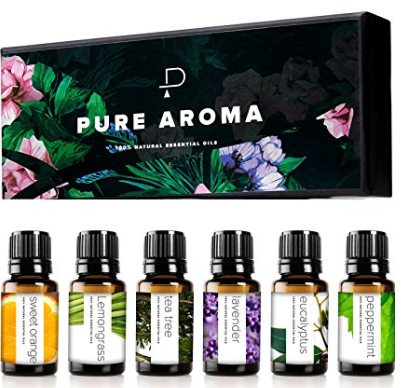
100% PURE AROMA Essential oils 6-pack (Eucalyptus, lavender, lemon grass, orange, peppermint, and tea tree). ($6.95)
-
Omega-3
It’s well known that the high omega-3 content in oily fish is good for your heart, but it could also be good for your mental health. One study has shown that having more omega-3 fatty acids in a diet can help to lessen anxiety. Salmon is one of the most recognized sources of omega-3 but you can also try sardines, mussels, and anchovies.
-
Writing
Writing is extremely cathartic and can be a great way of expressing your worries. Once written down, you may find that your worries are far smaller and more manageable than you first thought. Writing a journal is a very popular method for managing anxiety. Many people turn their worries into pieces of creative writing too.
-
Petting Animals
Pets are a great sense of comfort for many people. They provide a great sense of anxiety relief and can help to calm nerves.
-
Natural Sunlight
Getting out in the sun is the most natural way to boost your vitamin D levels which can have a positive effect on your mood. Not only that, but there is a link between the amount of natural light your eyes take in and the amount of cortisol you produce. With more sunlight, you’ll produce less of the stress hormone cortisol. This can help to lift your mood and help you to feel less anxious.
-
Epsom Salts
A warm soothing bath is always a great way to relax. Adding in some Epsom salts can help really bring home some benefits. The Epsom salts contain magnesium sulfate which has been proven to calm nerves and lower your blood pressure.
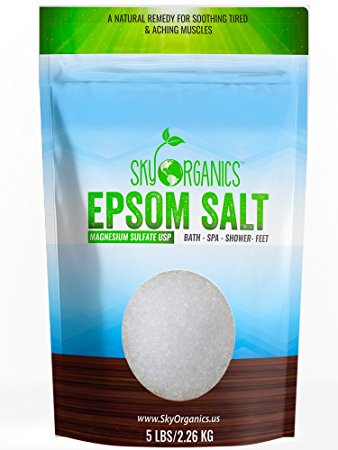
5lb bag of Sky Organics Epsom salt ($15.99)
-
Blueberries
Blueberries contain a number of nutrients that can help to reduce stress. These same nutrients can have a lifting effect on your mood and calm your nerves.
-
Peaches
Peaches contain many of the same nutrients as blueberries. This makes them equally good at reducing stress, calming your nerves and boosting your mood.
-
Whole Grains
Whole grains have a rich magnesium and tryptophan content. Both of these have a hugely positive impact on your mood. The tryptophan is converted by your body into serotonin which gives your mood an extra boost and calms your nerves.
-
Oats
Oats, like whole grains, can help increase your serotonin levels. They’re also high in fiber which can reduce the risk of blood sugar spikes which can have an effect on your mood.
-
Avocados
Avocados are packed full of vitamin B which is known to help reduce anxiety levels.

Fresh avocado is also high in vitamins and minerals
-
Dark Chocolate
Whilst too much chocolate isn’t great for your overall health, dark chocolate can help with anxiety. It is known to help lower your cortisol levels which naturally makes you feel less stressed.
-
Eat Less Processed Foods
We’ve already said that eating a balanced diet can help to reduce anxiety. But more specifically, whole foods can really help. If you cut out more of the processed foods from your diet you’ll not only be physically healthier but feel healthier too. Eating more whole foods means your more likely to get all the nutrients and minerals you need to stay healthy and feeling positive.
-
Magnesium
If you’re deficient in magnesium you may be more likely to suffer from anxiety. Magnesium is crucial to a number of chemical reactions in the brain and so is vital for good mental health. It’s also been proven to help regulate your sleep cycles. All around, it’s a great home remedy for anxiety.
-
Ashwagandha
Ashwagandha is a powerful herb which can be used to help treat a range of conditions – and has been for centuries. Like many of the home remedies for anxiety, it can help to reduce your production of cortisol. It also has a more general calming effect which helps to calm your nerves. You can add the powder to tea for an easy way to use this home remedy.

Ashwagandha herb
-
Kava Root
Kava root can help to ease a number of anxiety symptoms. It does this by stimulating your dopamine receptors, meaning your body takes up more dopamine, keeping your anxiety at bay.
-
Plan
Many therapists recommend planning in time to focus on your worries. It may sound strange, but this can help you to put your worries aside for the rest of your day. Put thirty minutes aside each day to really focus on and identify what it is that’s worrying you. This way you remove over-worrying from the rest of your day and helps you remove a number of things that really weren’t worrying you at all.
-
GABA (Gamma-aminobutyric acid)
GABA is an amino acid that helps to decrease your anxiety by relaxing your muscles and calming the nervous system. It can also help to reduce insomnia. GABA is key for regulating your nerve cells to calm anxiety levels. It also causes a sedative effect by inhibiting certain neurotransmitters in your brain.

Yogurt is a high in GABA
Which of these home remedies will you try to reduce your anxiety? Comment below!
References
https://www.healthline.com/health/natural-ways-to-reduce-anxiety
https://www.health.com/health/gallery/0,,20669377,00.html#give-yourself-credit-1
https://www.medicalnewstoday.com/articles/322396.php
https://www.rd.com/health/conditions/natural-anxiety-relief/
https://www.naturalstacks.com/blogs/news/natural-remedies-anxiety
https://www.webmd.com/anxiety-panic/anxiety-tips#1
https://www.livestrong.com/article/478780-a-list-of-foods-with-the-highest-gaba/
Ashwagandha photo by Hari Prasad Nadig.


